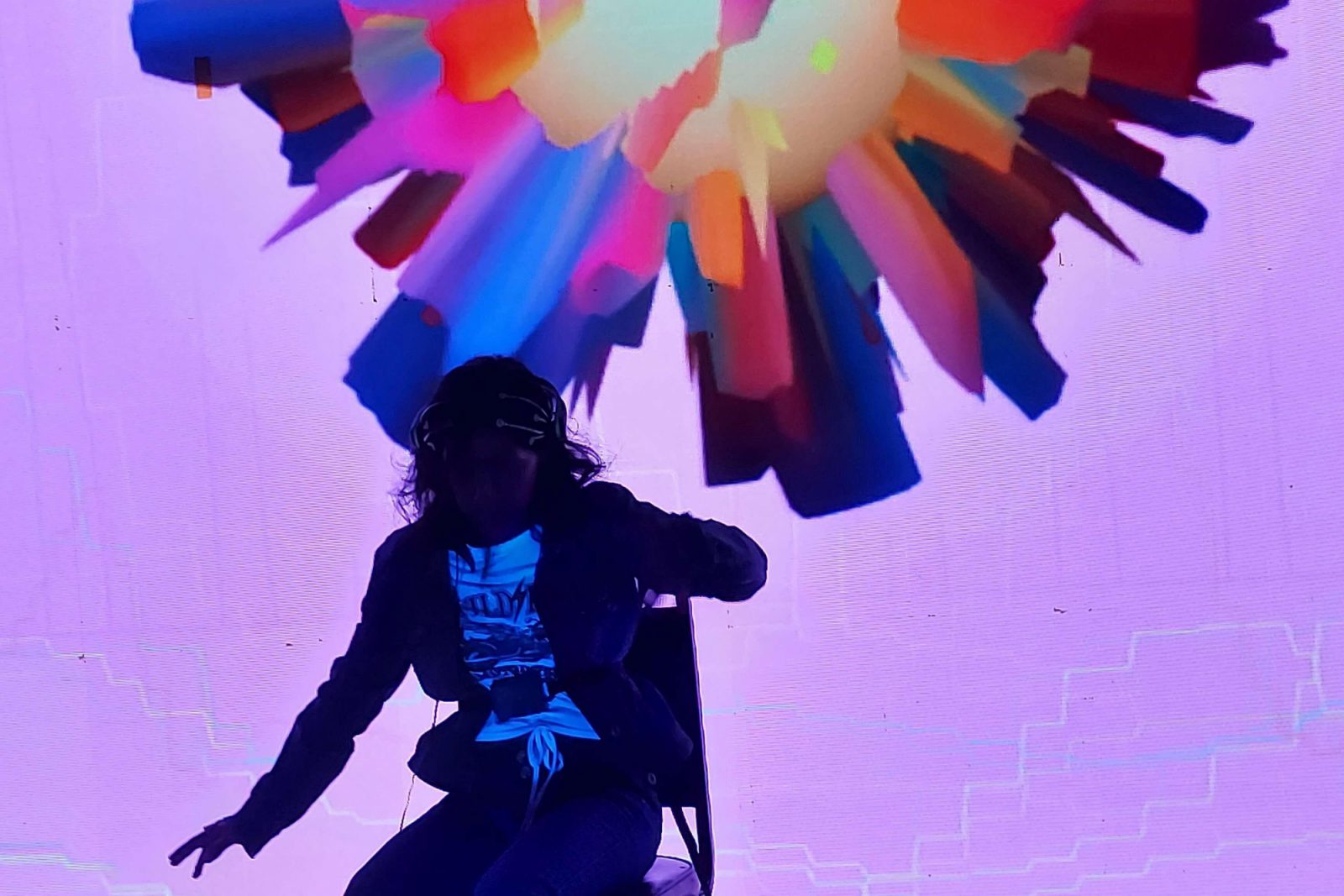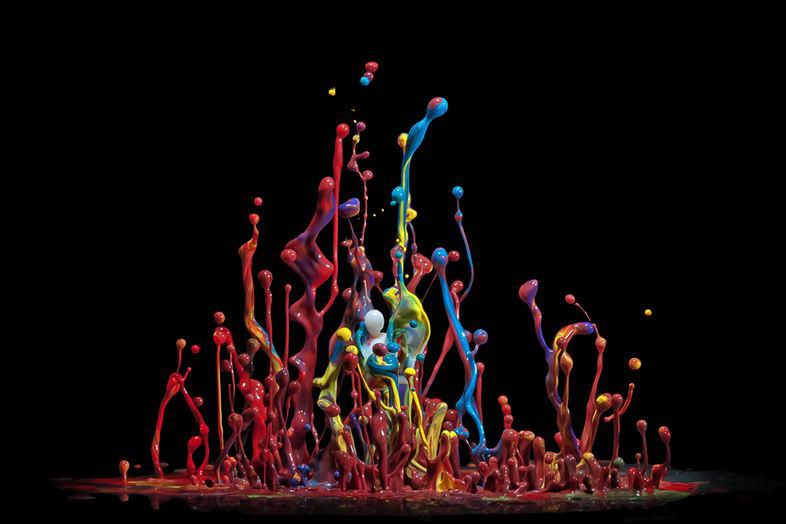Joyful Horror, Lensless Photography, and Roundup #25
In which we discover that holobionts, synthfluencers, paragraphica, and sweaty mankins in a dystopian-loving creatorsphere were not enough to distract scientists from finally finding our other moon.

Image from Mario D. Alvarado’s Mindfulness Data Audiovisual Project
A bit of science. A touch of tech. A splash of AI. A douse of culture.
Mix it with fake moons, fake cameras, and fake influencers.
And now, the next issue of The New New is ready to roll.
Let’s go.
One Big Thing
Joy, Meet Horror
As the year rolls on, we’re full on for the feels
We are halfway through the Year of Joy.
Joy has been studied by TikTok, proclaimed as the Next Frontier of Precision Medicine, and framed as a full “joyconomy.”
Consumers are craving “positive feeds and social circles, showing resilience, innovation, and joy in the face of continued hardship.”
Brands are responding by offering “bold color pallets, positive channels for connectivity, uninhibited play for all ages, and exercise classes that elevate moods and heart rates in one celebratory leap.”
But, joy is not all people want now.
More than ever, people want brands to help them feel intense emotions.
Enter horror—and our collective pursuit of dystopia.
As Stylus stated perfectly: “In the era of polycrisis, consumers seeking both release and thrills from the safe side of the screen are devouring a new wave of terrifying tales and horror influences. American Gen Zers now say horror is their second-favorite entertainment genre.”
The most popular shows on US and UK television are darker. #HorrorTok keeps trending. Dystopian fiction is selling.
Much like television trends in late 2001, the sensory joys of the fear factor have returned.
The Roundup
Around the Office
Office Peacocking, while real estate is embracing “resimercial,” businesses are going to even greater lengths to make their offices look and feel homey
Proactive Rest, combating employee burnout by experimenting with ways to make team members take a break
Loud Quitting, unlike their disengaged peers who are quiet quitting, people are getting more extreme with their job-related displeasures
In the Creatorsphere
PROMPTER, an acronym to hack the perfect prompt (you know, since our future is just wordplay)
Synthfluencers, working above inauthenticity, virtual influencers and VTubers are now seen as relatable brand promoters
Automated Hustle, or as Futurism puts it: “The unholy trinity of the Content Industrial Complex meets generative AI meets LinkedIn brain rot is finally here”
From the Lab
Thermal Manikin, breathing, sweating, shivering robot is helping scientists better understand the health impacts of extreme temperatures on the human body
Holobionts, a paradigm shift in biology from the old idea of “having a microbiome” into the new idea of “united meta-organisms made up of animals, plants, and the microbiota that live inside them”
Tactile Graphics, helping end image poverty with new systems for conveying information by touch
Into the Future
Air-gen, generating electricity from thin air—now using any material
Ammonia Engines, bringing many benefits (and big concerns) to passenger cars (also, fun fact: ammonia carries hydrogen better than hydrogen carries hydrogen).
Onsite Recycling Systems, making the “extreme decentralization” of black and grey water a new construction requirement
Following Along
Fake Moon, has been following Earth since 100 BC—astronomers just noticed it
What To Watch For
The (Lensless) Future of Photography
Move over (again) Kodak; hello Paragraphica

Here’s a picture of Bjørn Karmann holding a camera. Except, that camera that does not have a lens. It does not have sensors. There is no LiDAR or scanners of any type.
Yet, Bjørn is using it to capture photos.
How?
“Paragraphica is a context-to-image camera that uses location data and artificial intelligence to visualize a ‘photo’ of a specific place and moment.”
So, how?
When someone presses the camera’s trigger, Paragraphica collects data about its exact location utilizing the address, weather, time of day, and nearby places. It then taps into Google Maps’ Street View and, as Yanko Design describes it: “to run an Image-to-Image AI model and generate a new, whimsical photograph from scratch.”
As the return of Kodak FunSaver’s and cassette tapes continue to prove, nostalgia will keep AI at bay until real life can become stranger than fiction again.
The Re-Re, Meet Zoe

As an aesthete for alliterations, Issue 17 was fertile ground.
Cooking the Cookies.
Finding Fans.
Rewirement and Reuse.
Books and Bathrooms. (Or should it have been Libraries and Loos?)
Plus, I am still wondering why a new weather naming system started with the letter Z.
The intrigue is infused throughout this recent roundup.
The New New brings together the important and the irreverent across emerging experiences, culture-driven experiments, and scoops of perception.
Each month(ish), this is pulled together by me, Brent Turner, and published on LinkedIn, Substack, and my site.
Okay, off to see what scares us next.
- B





